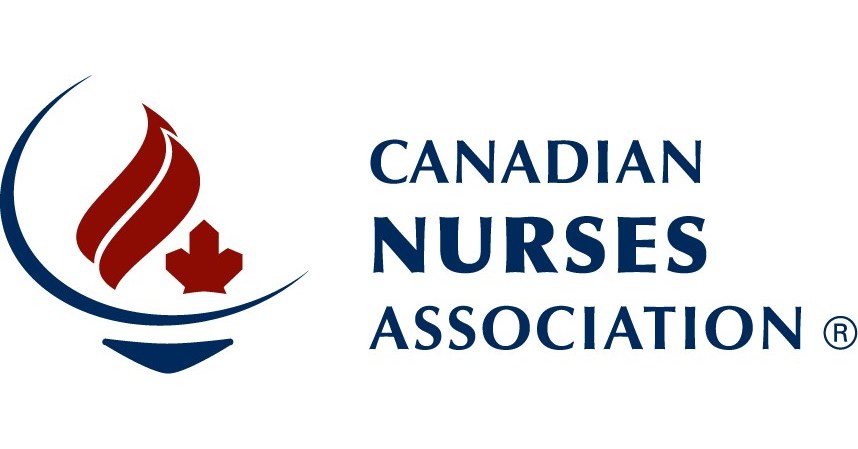Canadian Nurses Association (CNA): Championing Nursing Excellence and Advocacy in Canada
Introduction
The Canadian Nurses Association (CNA) is the national professional voice for nurses in Canada. Established in 1908, the CNA plays a crucial role in advocating for the nursing profession, setting standards for practice, and promoting health and well-being across the country. This article provides an in-depth look at the CNA’s mission, key initiatives, and its impact on nursing and healthcare in Canada.
Mission and Objectives
Mission
The CNA’s mission is to represent and support nurses in their efforts to provide high-quality, patient-centered care, and to promote health equity and improved healthcare outcomes for all Canadians. The organization aims to:
Advocate for the Nursing Profession: Represent the interests of nurses at national and international levels.
Promote Nursing Excellence: Set standards for nursing education, practice, and ethics to ensure the highest quality of care.
Support Professional Development: Provide resources, education, and certification opportunities to help nurses advance in their careers.
Advance Health Policy: Influence health policy to improve the health and well-being of Canadians.
Objectives
To achieve its mission, the CNA focuses on several key objectives:
Advocacy and Representation: Advocate for the nursing profession and represent nurses in policy discussions and decision-making processes.
Standards and Certification: Develop and uphold standards for nursing practice and provide certification in various nursing specialties.
Education and Research: Promote lifelong learning, continuing education, and support research that advances nursing practice and health outcomes.
Health Equity: Work towards reducing health disparities and promoting equitable access to healthcare services across Canada.
Key Initiatives and Programs
Advocacy and Policy
The CNA is actively involved in advocacy efforts to influence healthcare policy and improve the nursing profession:
Health Policy Advocacy: Engage with government officials, policymakers, and stakeholders to advocate for policies that support the nursing profession and improve healthcare delivery.
Public Awareness Campaigns: Raise awareness about the role of nurses in healthcare and the importance of investing in nursing education and workforce development.
Standards and Certification
The CNA sets standards for nursing practice and offers certification programs to ensure high levels of competency in various nursing specialties:
Certification Programs: Provide nationally recognized certification in specialties such as critical care, oncology, community health, and more.
Standards of Practice: Develop and update standards of practice to ensure that nurses provide safe, effective, and ethical care.
Education and Professional Development
The CNA supports the professional growth of nurses through various educational resources and programs:
Continuing Education: Offer online courses, workshops, and seminars to help nurses stay current with the latest developments in healthcare.
Leadership Development: Provide resources and training programs to develop leadership skills among nurses and support their career advancement.
Research Grants: Support research initiatives that contribute to the advancement of nursing practice and improve patient care outcomes.
Health Equity and Public Health
The CNA is committed to promoting health equity and addressing social determinants of health:
Health Equity Initiatives: Advocate for policies and programs that address health disparities and promote equitable access to healthcare services.
Public Health Campaigns: Collaborate with public health organizations to address pressing health issues, such as chronic disease prevention, mental health, and Indigenous health.
Impact of the Canadian Nurses Association
Benefits for Nurses
Professional Recognition: CNA certification provides national recognition of expertise and competency in specialized areas of nursing practice.
Advocacy Support: The CNA’s advocacy efforts help nurses influence healthcare policy and ensure that their voices are heard in decision-making processes.
Educational Opportunities: The CNA offers a range of educational resources and professional development opportunities to support nurses throughout their careers.
Benefits for Patients and Healthcare
High-Quality Care: By setting standards for nursing practice and providing certification, the CNA ensures that patients receive care from highly skilled and knowledgeable nurses.
Improved Health Outcomes: The CNA’s advocacy for health equity and public health initiatives contributes to improved health outcomes for Canadians.
Enhanced Healthcare System: The CNA’s efforts to influence healthcare policy help create a more effective and efficient healthcare system.
Impact on Healthcare Policy
Influencing Policy: The CNA has a significant impact on healthcare policy in Canada, advocating for changes that benefit both nurses and patients.
Collaboration with Stakeholders: The CNA works closely with government bodies, healthcare organizations, and other stakeholders to shape policies that improve healthcare delivery and nursing practice.
Future Directions and Challenges
Evolving Standards and Practice
As healthcare continues to evolve, the CNA is focused on adapting its standards and initiatives to meet new challenges:
Updating Standards: Regularly updating standards of practice to reflect the latest research, technology, and best practices in nursing.
Integrating Technology: Embracing new technologies and digital tools to enhance nursing practice and education.
Addressing Workforce Challenges
The CNA is addressing several challenges facing the nursing workforce, including:
Nursing Shortages: Advocating for policies that address nursing shortages and support workforce development to meet the growing demand for healthcare services.
Workplace Safety and Well-being: Promoting workplace safety, mental health support, and work-life balance for nurses to prevent burnout and ensure a sustainable workforce.
Conclusion
The Canadian Nurses Association (CNA) is a vital organization in the Canadian healthcare landscape, representing and supporting nurses across the country. Through its advocacy efforts, standards-setting, certification programs, and commitment to health equity, the CNA plays a critical role in promoting nursing excellence and improving healthcare outcomes. The CNA’s work ensures that nurses are well-prepared to meet the challenges of modern healthcare and continue to provide high-quality, patient-centered care to all Canadians.




